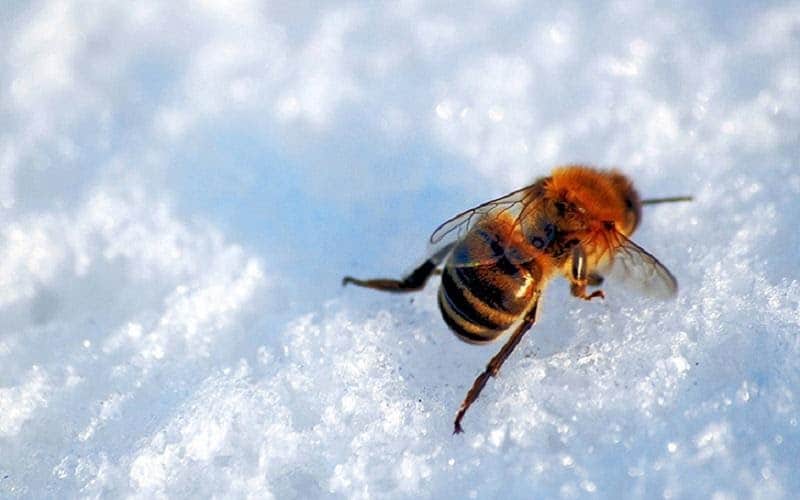Weather Affects Bee on During Winter
Weather Affects Bee on During Winter

Hey, honey bee lovers! We’re back for another trivia blog! This topic will mostly revolve on how the summer season affects our pollinators. Did you know that the survival of honey bee colonies during winter is strongly influenced by summer temperatures and precipitation in the prior year? In case you don’t know this fact, scroll down and join us to learn more about this topic.
It was said by Penn state that their findings suggest honey bees should have a “goldilocks” preferred range of summer conditions outside of their probability of surviving the winter falls. The Goldilocks principle refers to the concept of “just the right amount” of whatever is being considered. In this case, the honey colonies.
Honey bees contribute more than $20 billion in pollination services. It is estimated that the agriculture of the United States generates another $300 million annually in honey production for honey beekeepers.
However, honey bees are not dominant during winter. Winter colony mortality greatly reduces the economic and ecosystem contributions of honey bees. Although winter mortality is known to vary regionally, the landscape and weather factors underlying this variation are poorly understood.
The bees remain active and maintain the hive temperature between 75 and 93 degrees Fahrenheit by forming a thermoregulating cluster, in which they organize into a tight ball and vibrate their flight muscles to generate heat, allowing the colony to survive when outside temperatures fall below 50 F. This enables them to survive long periods of cold temperatures. The honey bee colony stops during the winter. They stop foraging for nectar and pollen and relies on its existing food stores, collected during the plant growing season
Because of the weather, any factors that limit the colony’s ability to store adequate amounts of food during the summer and fall, that undermine effective thermoregulation during the winter, or that reduce the life span of overwintering bees can contribute to colony mortality. Therefore, it is concluded that weather conditions really make an influence on the availability of forage, the bees’ ability to thermoregulate in the winter, and the amount of time before bees are able to initiate brood rearing in the spring.
